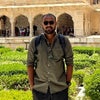Indo-Dutch Collaboration to Drive Healthtech, AI Solutions to Become More Significant According to the Ministry of Ayush, GOI, 2025, the Indian healthcare sector is expected to reach USD 638 billion from USD 110 billion in 2016 due to rising income levels, greater health awareness, increased precedence of lifestyle diseases, and improved access to insurance, which would be the key contributors to growth.
Opinions expressed by Entrepreneur contributors are their own.
You're reading Entrepreneur India, an international franchise of Entrepreneur Media.

AI-driven innovations in health are poised to become more significant in healthcare and fields such as cell and gene therapy, affordable care, and maternal, newborn, and child health (MNCH) are to see significant improvements, according to Taslimarif Saiyed, Director and CEO, Centre for Cellular and Molecular Platforms (C-CAMP).
According to the Ministry of Ayush, GOI, 2025, the Indian healthcare sector is expected to reach USD 638 billion from USD 110 billion in 2016 due to rising income levels, greater health awareness, increased precedence of lifestyle diseases, and improved access to insurance, which would be the key contributors to growth.
C-CAMP has received tremendous support from the government to spur innovations over the years, said Saiyed, and he added that bodies such as the Department of Biotechnology, Niti Ayog, BioBank, the Karnataka Government, and the Centre have been backers of the project.
"The support is largely allowing us to build and take, I would say, take risk with such ideas. There's a lot of risk involved because there are new ideas. So we take the role of practitioners on the ground and get resources from the government to identify the talent, attract them, and then hand-hold them for many years till they become successful like that. So that's why the support from the government is very important because when a market doesn't take risk, the government has to take the risk. That's the role of government, and it has been able to to do it," Saiyed told Entrepreneur India.
Startup innovations, especially in the healthcare sector has seen significant growth, with healthtech startups reportedly raking in USD 7.25 billion in funding between 2014 and 2024 according to an Inc42 Funding Report.
C-CAMP today hosted and mediated a bilateral discussion between the Karnataka Government represented by Dinesh Gundu Rao, Minister of Health and Family Welfare, and Barbara Goezinne, Dutch Vice Minister of Health, Curative Care. Discussions took place around a possible Indo-Dutch partnership to focus on digital health and AI-powered healthtech from the state.
"Innovation should be translated into real-world applications and C-CAMP has been playing a crucial role. Several innovations from C-CAMP have already been implemented, such as solutions for eye care and retinopathy treatment. Another example is technology to measure fetal heart rate in the womb. It is great to have visitors from the Netherlands here today—we can learn from experiences and explore potential collaborations in the future," said Gundu Rao.
During the meeting, the Dutch delegation expressed interest in finding paths to develop selected advanced Karnataka-based healthcare technology in the Netherlands around scopes such as labor-saving technologies in healthcare, innovations in pharmaceuticals with AI in drug development and discovery, and remote monitoring and telehealth-related solutions as a screening method.
Barbara Goezinne said, "The philosophy to make innovative technologies, like stem cell therapy, more accessible and affordable is really inspiring. We are committed to working together in the field of medical technology, particularly in the development of innovative, labour-saving medical solutions to support all health care professionals."
C-CAMP's existing portfolio includes more than 80 deeptech startups covering areas such as Artificial Intelligence (AI) and Machine Learning (ML), genomic data analysis, healthcare analytics/big data, computer-assisted diagnosis, Internet of Things (IoT), Virtual & Augmented Reality, wearables, and other similar technologies
"We have a strong cohort of AI-based health tech startups that have impact potential not only for resource-poor settings but also the Global North where resources are aplenty but healthcare challenges and economic burden of health persist," added Saiyed.










